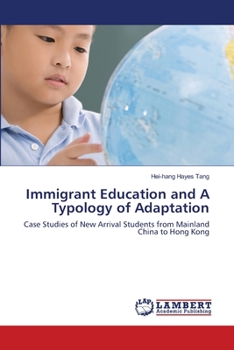Immigrant Education and A Typology of Adaptation
This book tracks the wave of new immigrants from Mainland China to Hong Kong since late 1990s through the turn of the new century. Perceived as a social problem in Hong Kong, many of these 'arrivals' are school-age children who may have been brought up in a different culture and who come to Hong Kong for family reunion. This study sets out to explore the different adaptation pathways that the new arrival students have gone through, and to explain their academic success and failure. Using social capital and cultural capital as the key analytic concepts, the author argues that supportive networks with the institutional agents is necessary for the new arrival students to activate the capital they possess, and to accumulate further capital for assimilating or accommodating to the society and culture of Hong Kong. A typology of adaptation, namely "Transitional Adaptation", "Instrumental Adaptation", "Accommodative Adaptation", "Bicultural Adaptation" and "Marginality" is constructed to delineate and capture the divergent experiences of the new arrival students, and the way their academic achievements are affected.
Format:Paperback
Language:English
ISBN:3844323759
ISBN13:9783844323757
Release Date:August 2011
Publisher:LAP Lambert Academic Publishing
Length:136 Pages
Weight:0.46 lbs.
Dimensions:0.3" x 6.0" x 9.0"
Customer Reviews
0 rating





